Frankenstein (1931)
“Now I know what it feels like to be God!”
|
Synopsis: |
|
Genres, Themes, Actors, and Directors:
Response to Peary’s Review: In the remainder of Peary’s review, he provides an interesting analysis of the film’s themes and philosophical groundings. He argues that “Whale seems to go along with Shelley’s controversial belief that Frankenstein’s sin is not that he defies God by creating life but that once he becomes a creator he both emulates God and competes with him for sovereignty”. Indeed, this is evidenced by the powerful scene in which “Karloff beautifully conveys the recently born being’s newfound feelings of warmth and wonderment” as he “shuffles directly under the light” which is “flickering into the dark chamber”, only for Dr. Frankenstein to “block out the light, jealously refusing the creature any knowledge (symbolized by sunlight) that he didn’t offer himself, as well as any contact with the god who sent his sun ray.” Peary’s interpretation here is spot-on, and demonstrates the level of care taken with turning Shelley’s complex tale into more than just a standard horror flick. What’s most tremendous about Frankenstein is the way in which we come to genuinely care about the Monster — even when (in perhaps the movie’s most affecting, devastating scene) his new friendship with a young girl goes tragically wrong. Karloff’s ability to convey depth of emotion through layers of expertly applied make-up (which apparently took five hours each day to apply, and two hours to remove) is truly impressive; it’s understandable why Peary chose to nominate him as one of the Best Actors of the Year in his Alternate Oscars book. Also impressive (if less astonishing) is Clive’s performance as Dr. Frankenstein. Knowing Clive’s personal history (he died just six years later, at the age of 37, from complications related to his alcoholism) adds an extra layer of pathos to his portrayal of a man who “has withdrawn into self-imposed isolation… and become an elitist”, ultimately neglecting “his fatherly obligations and abandon[ing] his ‘son’, leaving the creature to make its way in a world repulsed by grotesquery”. Redeeming Qualities and Moments:
Must See? Categories
(Listed in 1001 Movies You Must See Before You Die) Links: |
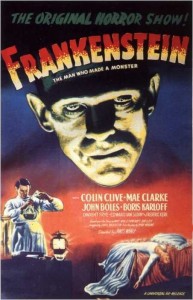
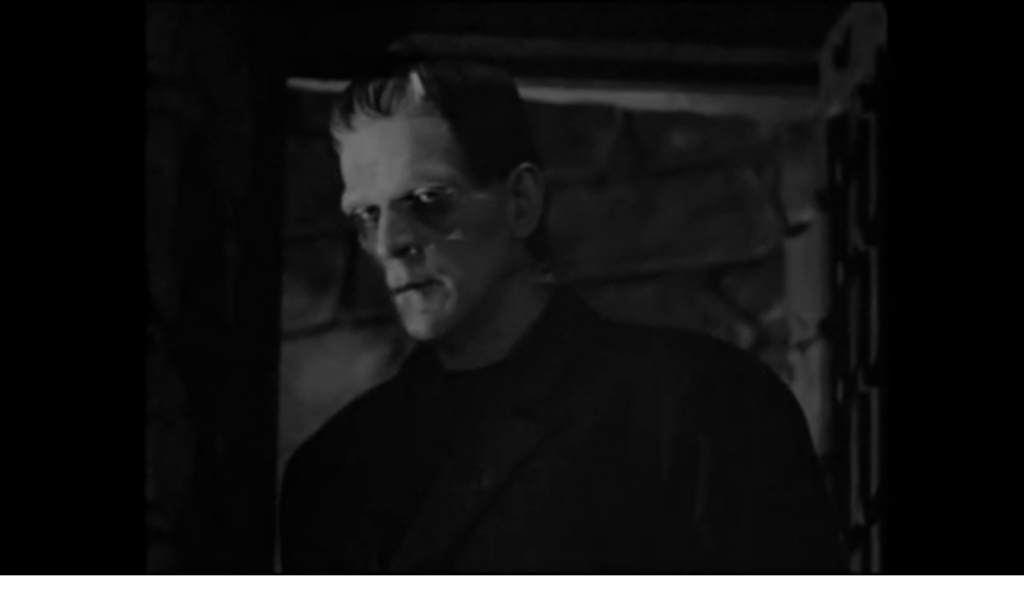
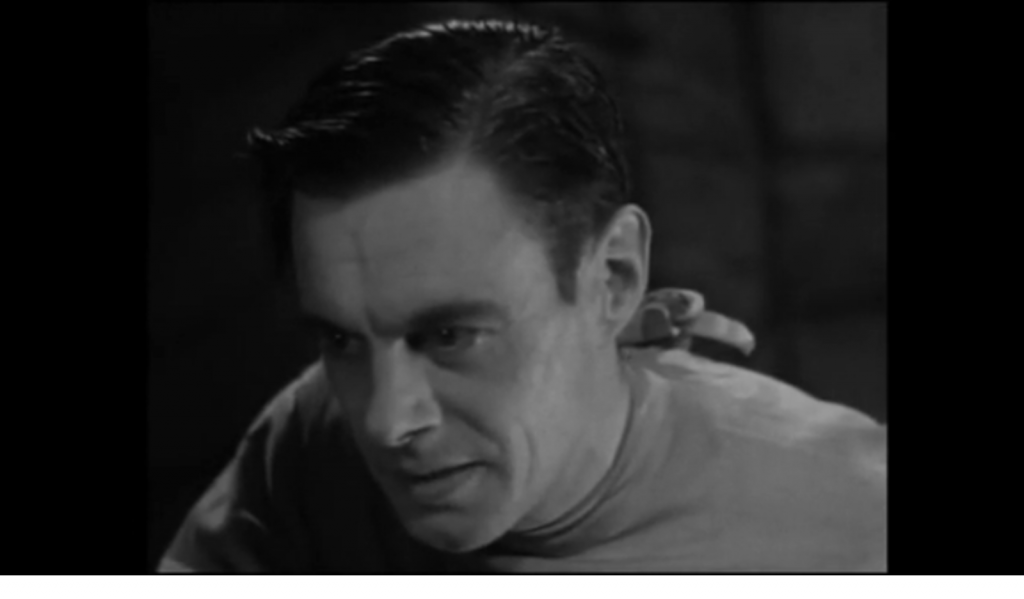
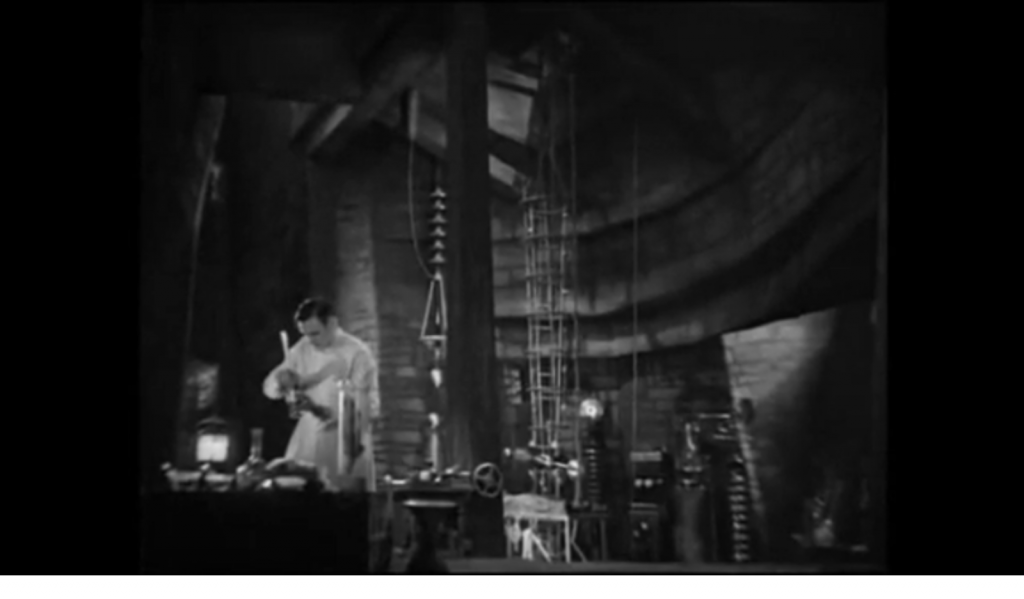
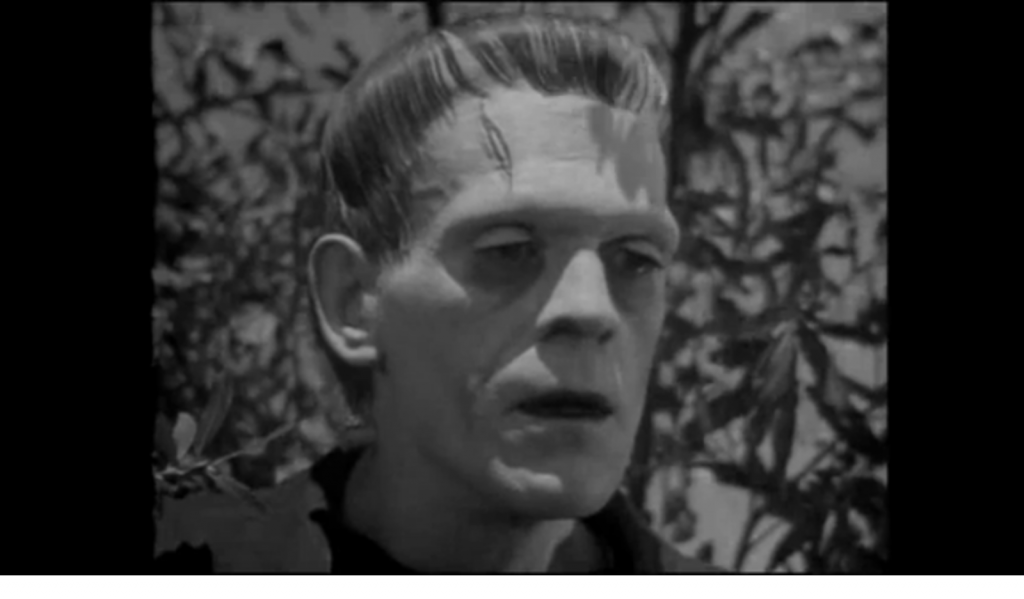
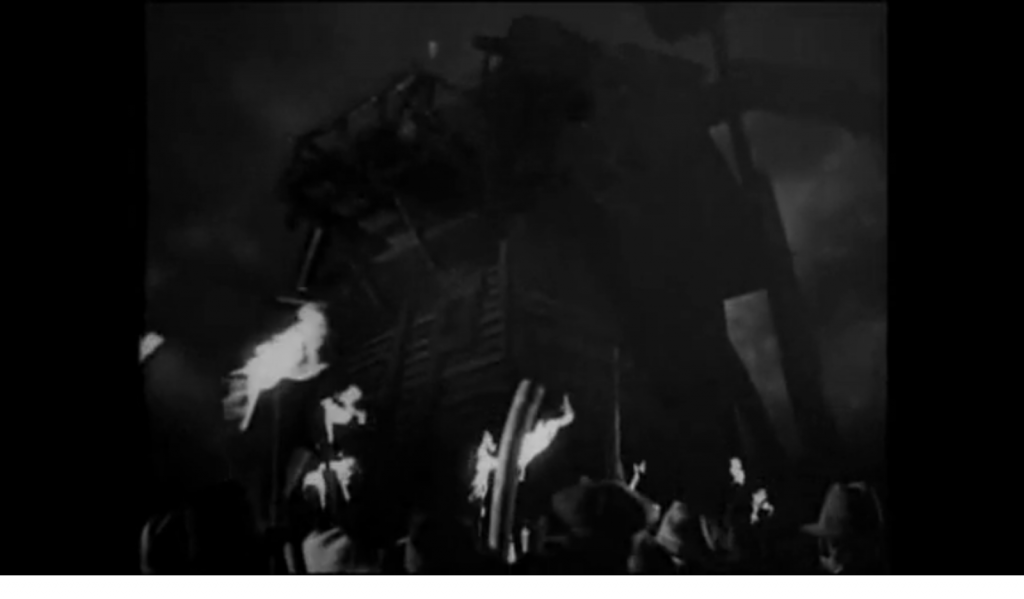
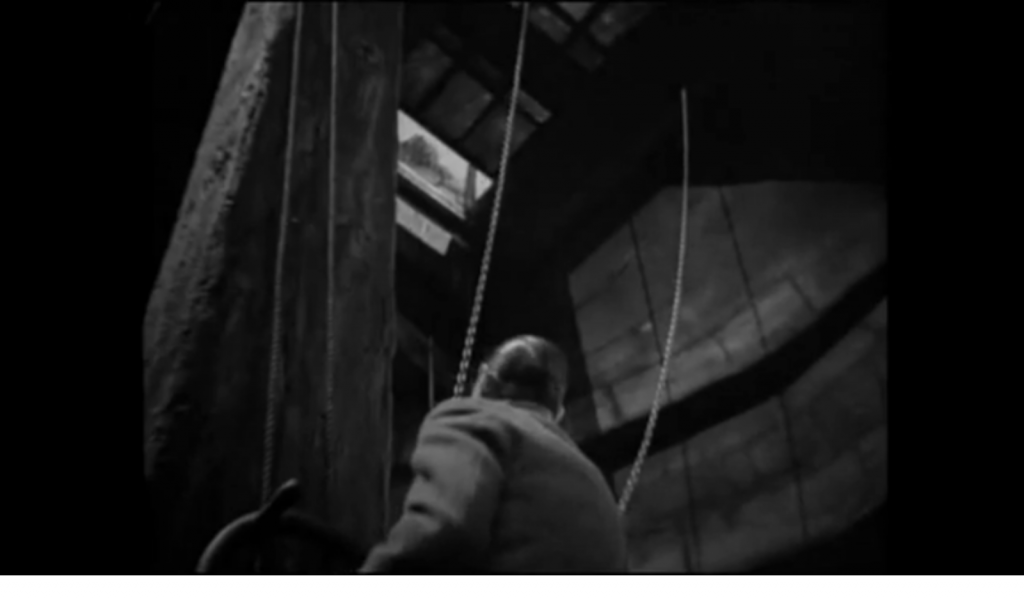
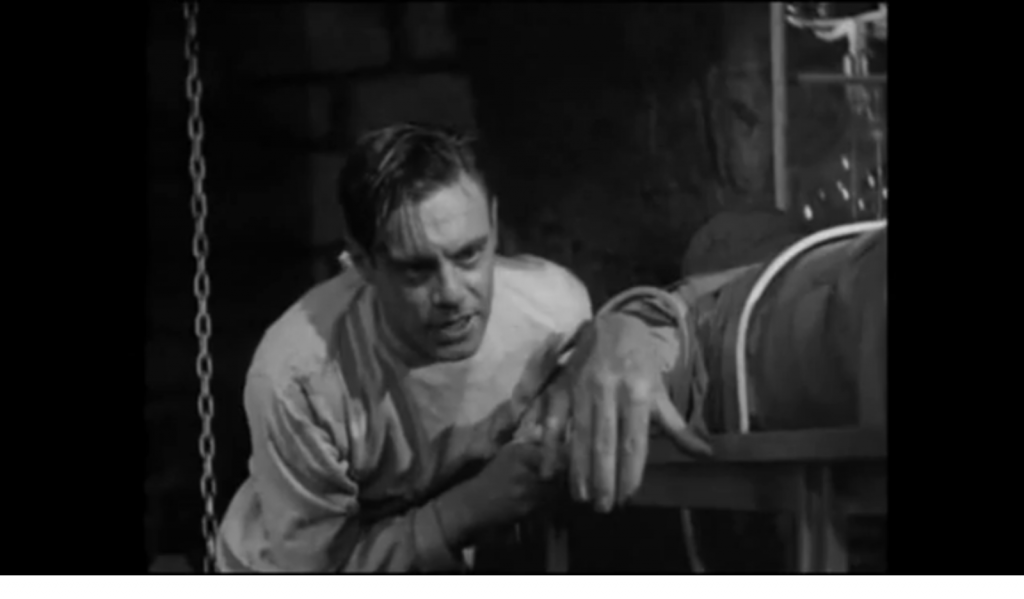
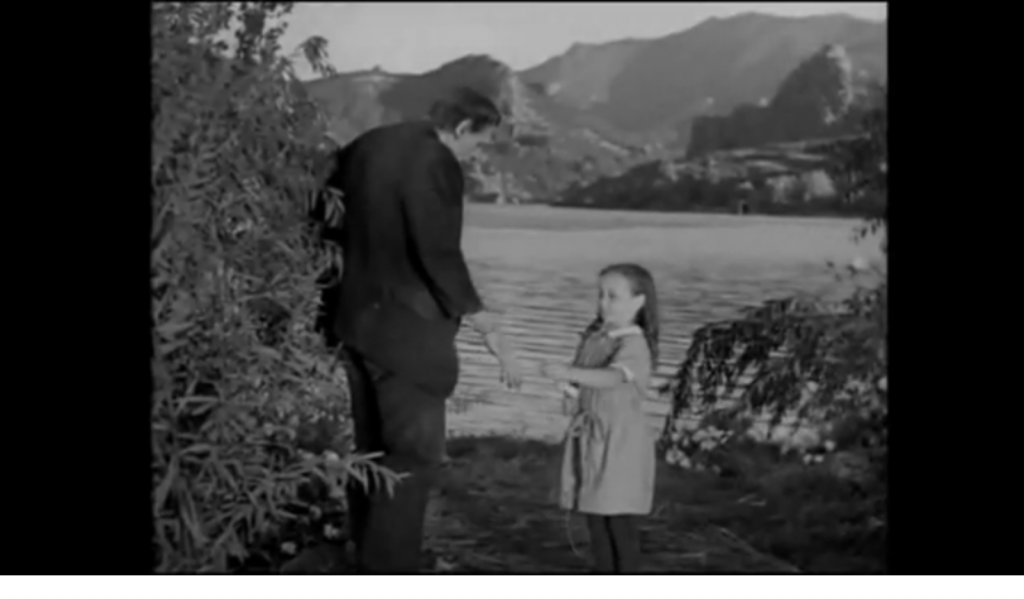
3 thoughts on “Frankenstein (1931)”
Masterful storytelling. In fact, a masterpiece. I still prefer the book – but this is one terrific flick.
It’s really remarkable that we were given ‘Frankenstein’ so early into the sound era. In some ways, it could have fit in nicely as a silent. Yet, so much would have been lost. ‘Frankenstein’ needed to come screaming into our consciousness – and it did. And it still does. I don’t really think it lives in the shadow of its sequel at all. Though both are wonderful pieces of work, I do think ‘Frankenstein’ has the edge. Stripped of the gay sensibility that would (entertainingly) mark the sequel, ‘Frankenstein’ has director Whale in a completely serious and determined mood; he set out to make a no-holds-barred horror film – and, considering what ‘horror’ was at the time (note how a gentleman comes out at the beginning of the film to warn viewers that this film may be somewhat more than they’re accustomed to), he succeeded. This film is remarkable in every aspect; everything is right on the money here – and it was a chilling experience to return to it.
FFs may actually find this a film to study – to see exactly how it succeeds, one sequence upon another. It’s rather astonishing how well this film holds up at 80 years of age. (We should all be so lucky, come that time.) Nothing really pulls attention from anything else, making it true ensemble work – from direction to performances to design. (I happen to think Clive is quite perfect as Henry; but the performances, in general, are devoid of vanity – and it’s really quite amazing what Karloff accomplishes from under all that make-up.)
Yessiree-bob! ~one hot piece of classic horror!
cf.: Naturally in a comic vein – ‘Young Frankenstein’ and ‘The Rocky Horror Picture Show’. But, in a more appropriately serious light, ‘The Spirit of the Beehive’; much of which hinges on the original ‘Frankenstein’.
I Like Boris Karloff’s Performance As Frankenstein’s Monster And The Scene When Frankenstein’s Monster Comes To Life.
⭐️⭐️⭐️⭐️
A classic but not the best of the Universal series and it’s dying to have a proper score. Splendid production design and cinematography. Karloff’s performance and look are of course iconic.